-
×
 Heart Awakenings By Unlock Your Design Academy
1 × $46,00
Heart Awakenings By Unlock Your Design Academy
1 × $46,00 -
×
 Instagram Essentials Plus By Masha Varnavski - The Setters
1 × $23,00
Instagram Essentials Plus By Masha Varnavski - The Setters
1 × $23,00 -
×
 Ultimate Blood Work Course By Sten Ekberg
1 × $31,00
Ultimate Blood Work Course By Sten Ekberg
1 × $31,00 -
×
 The Great Tours: Ireland and Northern Ireland By Marc Conner
1 × $5,00
The Great Tours: Ireland and Northern Ireland By Marc Conner
1 × $5,00 -
×
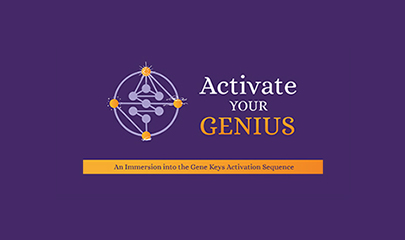 Activate Your Genius By Unlock Your Design Academy
1 × $39,00
Activate Your Genius By Unlock Your Design Academy
1 × $39,00 -
×
 The Heart of Love - Audiobook By John Demartini
1 × $15,00
The Heart of Love - Audiobook By John Demartini
1 × $15,00 -
×
 Understanding Cognitive Biases By Alexander Swan
1 × $5,00
Understanding Cognitive Biases By Alexander Swan
1 × $5,00 -
×
 6 Figure Instagram Content By Haley & Madison - Maha Copy
1 × $23,00
6 Figure Instagram Content By Haley & Madison - Maha Copy
1 × $23,00 -
×
 Speed Seduction Powerpack Gold Walkup By Ross Jeffries
1 × $23,00
Speed Seduction Powerpack Gold Walkup By Ross Jeffries
1 × $23,00 -
×
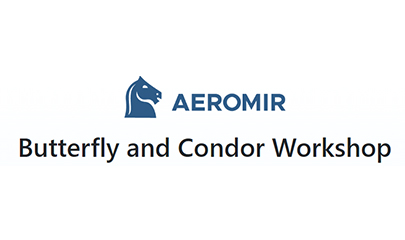 Butterfly and Condor Workshop By Aeromir
1 × $15,00
Butterfly and Condor Workshop By Aeromir
1 × $15,00 -
×
 TikTok Ads Mastery 2024 By Chase Chappell
1 × $23,00
TikTok Ads Mastery 2024 By Chase Chappell
1 × $23,00 -
×
 Social Media Mastery by Mindvalley
1 × $28,00
Social Media Mastery by Mindvalley
1 × $28,00 -
×
 How You Decide: The Science of Human Decision Making By Ryan Hamilton
1 × $5,00
How You Decide: The Science of Human Decision Making By Ryan Hamilton
1 × $5,00 -
×
 Bookkeeping for Crafters By Lauren Venell
1 × $5,00
Bookkeeping for Crafters By Lauren Venell
1 × $5,00 -
×
 Shamanic Journeying to Connect With Ancestral Wisdom Keepers of Past And Future By Roel Crabbe
1 × $46,00
Shamanic Journeying to Connect With Ancestral Wisdom Keepers of Past And Future By Roel Crabbe
1 × $46,00 -
×
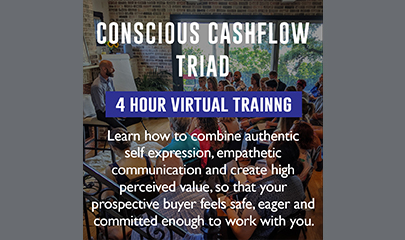 Conscious Cashflow Triad By Jesse Elder
1 × $101,00
Conscious Cashflow Triad By Jesse Elder
1 × $101,00 -
×
 Ecommerce Forecasting By Dave Rekuc - ConversionXL
1 × $5,00
Ecommerce Forecasting By Dave Rekuc - ConversionXL
1 × $5,00 -
×
 Secrets Of Subtle Sales Mastery Deluxe By Paul Ross
1 × $23,00
Secrets Of Subtle Sales Mastery Deluxe By Paul Ross
1 × $23,00 -
×
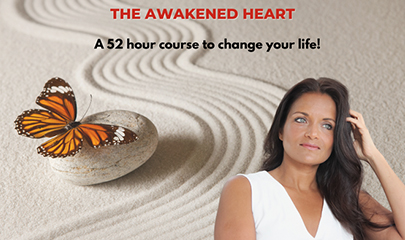 The Awakened Heart By Shefali Tsabary
1 × $233,00
The Awakened Heart By Shefali Tsabary
1 × $233,00 -
×
 Twitter Masterclass Recordings By Cold Email Wizard
1 × $39,00
Twitter Masterclass Recordings By Cold Email Wizard
1 × $39,00 -
×
 Orgasmic, Tantric And Erotic Hypnosis By David Mears
1 × $163,00
Orgasmic, Tantric And Erotic Hypnosis By David Mears
1 × $163,00 -
×
 DeluxeBundle Collection Seduction Materials by Brad P
1 × $5,00
DeluxeBundle Collection Seduction Materials by Brad P
1 × $5,00 -
×
 Weightless Wealth By Elisa Canali
1 × $31,00
Weightless Wealth By Elisa Canali
1 × $31,00 -
×
 VIRTUOSITY by Scot McKay
1 × $23,00
VIRTUOSITY by Scot McKay
1 × $23,00 -
×
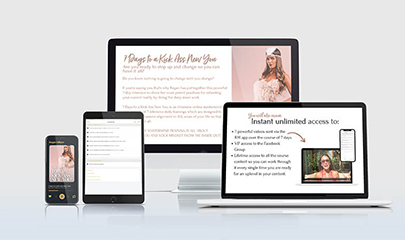 7 Days To A Kick Ass New You By Regan Hillyer
1 × $85,00
7 Days To A Kick Ass New You By Regan Hillyer
1 × $85,00 -
×
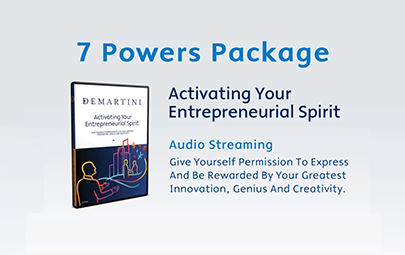 7 Powers Package By John Demartini
1 × $31,00
7 Powers Package By John Demartini
1 × $31,00 -
×
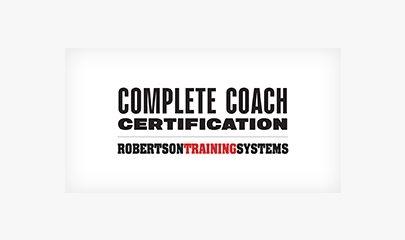 Complete Coach Certification By Mike Robertson
1 × $109,00
Complete Coach Certification By Mike Robertson
1 × $109,00 -
×
 Advanced Cycles By Nick Santiago - InTheMoneyStocks
1 × $171,00
Advanced Cycles By Nick Santiago - InTheMoneyStocks
1 × $171,00 -
×
 Land Flipping 101 Course By Kris Thomas
1 × $209,00
Land Flipping 101 Course By Kris Thomas
1 × $209,00 -
×
 2 Phase AI Trade Spy Total Immersion Experience By Jeff Bierman - The Quant Guy
1 × $209,00
2 Phase AI Trade Spy Total Immersion Experience By Jeff Bierman - The Quant Guy
1 × $209,00 -
×
 Master Moving Averages And Profit Multiplying Techniques By Nick Santiago And InTheMoneyStocks
1 × $54,00
Master Moving Averages And Profit Multiplying Techniques By Nick Santiago And InTheMoneyStocks
1 × $54,00 -
×
 Wealth Wisdom of the Ages By John Demartini
1 × $8,00
Wealth Wisdom of the Ages By John Demartini
1 × $8,00 -
×
 The SPY Beginners Flys And Calendars Deep Dive 2023 By Dan Sheridan And Sheridan Options Mentoring
1 × $31,00
The SPY Beginners Flys And Calendars Deep Dive 2023 By Dan Sheridan And Sheridan Options Mentoring
1 × $31,00 -
×
 Environment Translation Pack By Vaness Henry
1 × $31,00
Environment Translation Pack By Vaness Henry
1 × $31,00 -
×
 Writing Great Chapters By Daniel David Wallace
1 × $23,00
Writing Great Chapters By Daniel David Wallace
1 × $23,00 -
×
 The ClickMinded Social Media Marketing Course By Jasmine Atherton - Click Minded
1 × $171,00
The ClickMinded Social Media Marketing Course By Jasmine Atherton - Click Minded
1 × $171,00 -
×
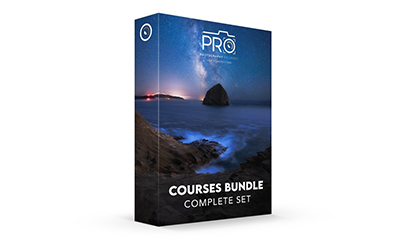 The Landscape Photography Bundle By John Weatherby
1 × $46,00
The Landscape Photography Bundle By John Weatherby
1 × $46,00 -
×
 15 Second Video Prospecting Machine By Attraction Marketing
1 × $62,00
15 Second Video Prospecting Machine By Attraction Marketing
1 × $62,00 -
×
 Online - The Demartini Values Training Program - USA 2020 (Videos Only) By Dr John Demartini
1 × $622,00
Online - The Demartini Values Training Program - USA 2020 (Videos Only) By Dr John Demartini
1 × $622,00 -
×
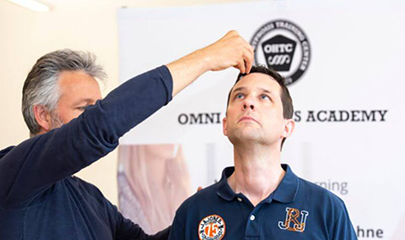 OMNI Intermediate - Become a HypnoCoach By Hansruedi Wipf - OMNI Hypnosis
1 × $179,00
OMNI Intermediate - Become a HypnoCoach By Hansruedi Wipf - OMNI Hypnosis
1 × $179,00 -
×
 Options Academy Elevate By Simon Ree - Tao of Trading
1 × $109,00
Options Academy Elevate By Simon Ree - Tao of Trading
1 × $109,00 -
×
 The Fitness Instagram Blueprint By Jason And Lauren Pak
1 × $139,00
The Fitness Instagram Blueprint By Jason And Lauren Pak
1 × $139,00 -
×
 Cognomovement An Energy Healing System With Bill McKenna and Liz Larson - The Shift Network
1 × $46,00
Cognomovement An Energy Healing System With Bill McKenna and Liz Larson - The Shift Network
1 × $46,00 -
×
 100K Offer System 2.0 By Kathryn Porritt
1 × $39,00
100K Offer System 2.0 By Kathryn Porritt
1 × $39,00 -
×
 Foundr - All Courses Bundle
1 × $23,00
Foundr - All Courses Bundle
1 × $23,00 -
×
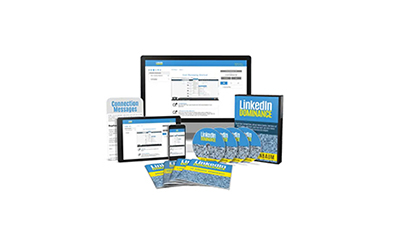 LinkedIn Dominance By Steve Rosenbaum
1 × $69,00
LinkedIn Dominance By Steve Rosenbaum
1 × $69,00 -
×
 The Persian Empire By John Lee
1 × $5,00
The Persian Empire By John Lee
1 × $5,00 -
×
 The Facebook Traffic Blueprint by Andy Skraga
1 × $5,00
The Facebook Traffic Blueprint by Andy Skraga
1 × $5,00 -
×
 Durga Saptashati By Pandit Rajmani Tigunait
1 × $85,00
Durga Saptashati By Pandit Rajmani Tigunait
1 × $85,00 -
×
 Fort Worth Playboy Evergreen VIP Bundle
1 × $69,00
Fort Worth Playboy Evergreen VIP Bundle
1 × $69,00 -
×
 Training the Electric/Magnetic Lines of Force with Movement By Sixty Skills
1 × $15,00
Training the Electric/Magnetic Lines of Force with Movement By Sixty Skills
1 × $15,00 -
×
 Shineon Treasury By Amanda
1 × $23,00
Shineon Treasury By Amanda
1 × $23,00 -
×
 Daygame Mastery - Mastery Package By Justin Marc
1 × $179,00
Daygame Mastery - Mastery Package By Justin Marc
1 × $179,00 -
×
 Yes Supply Method 2022 - Become a Life Coach, Manifestation Coach and Get Your NLP Certification By Reese Evans - Yes Supply
1 × $124,00
Yes Supply Method 2022 - Become a Life Coach, Manifestation Coach and Get Your NLP Certification By Reese Evans - Yes Supply
1 × $124,00 -
×
 6 Steps to Great Leadership (Videos Only) By John Demartini
1 × $54,00
6 Steps to Great Leadership (Videos Only) By John Demartini
1 × $54,00 -
×
 Complete ETR University By Craig Ballantyne
1 × $23,00
Complete ETR University By Craig Ballantyne
1 × $23,00 -
×
 Fitness Business Essentials Bundle By Carroll Performance
1 × $458,00
Fitness Business Essentials Bundle By Carroll Performance
1 × $458,00 -
×
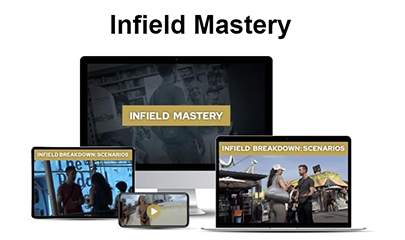 Infield Mastery Program By Matt Artisan
1 × $69,00
Infield Mastery Program By Matt Artisan
1 × $69,00 -
×
 Master The Milton Model By Michael Breen - NLP Times
1 × $132,00
Master The Milton Model By Michael Breen - NLP Times
1 × $132,00 -
×
 The Mango Butterfly Deep Dive 2023 By Jay Bailey And Sheridan Options Mentoring
1 × $31,00
The Mango Butterfly Deep Dive 2023 By Jay Bailey And Sheridan Options Mentoring
1 × $31,00 -
×
 Playful Millions 2023 By Cat Howell
1 × $31,00
Playful Millions 2023 By Cat Howell
1 × $31,00 -
×
 Content Empire OS by Matt Gray
1 × $23,00
Content Empire OS by Matt Gray
1 × $23,00 -
×
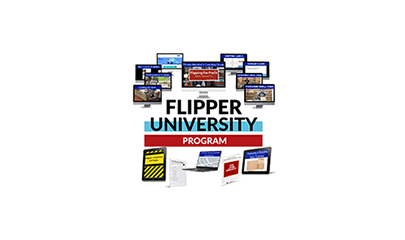 Flipper University - Pro Flipper PLUS Package (Beg, Intermediate, Freight) By Flea Market Flipper
1 × $209,00
Flipper University - Pro Flipper PLUS Package (Beg, Intermediate, Freight) By Flea Market Flipper
1 × $209,00 -
×
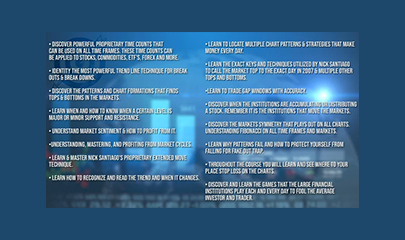 The Methodology Revealed By Nick Santiago And Gareth Soloway - InTheMoneyStocks
1 × $209,00
The Methodology Revealed By Nick Santiago And Gareth Soloway - InTheMoneyStocks
1 × $209,00 -
×
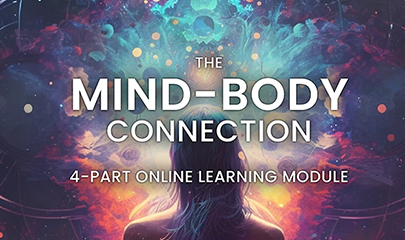 The Mind - Body Connection (Videos Only) By John Demartini
1 × $31,00
The Mind - Body Connection (Videos Only) By John Demartini
1 × $31,00 -
×
 The ClickMinded Sales Funnels Course By Jim Huffman - ClickMinded
1 × $171,00
The ClickMinded Sales Funnels Course By Jim Huffman - ClickMinded
1 × $171,00 -
×
 Wired For Weight Loss By Mark Patrick
1 × $23,00
Wired For Weight Loss By Mark Patrick
1 × $23,00 -
×
 Premiere Pro Quickstart + Power User Pack By Film Editing Pro
1 × $15,00
Premiere Pro Quickstart + Power User Pack By Film Editing Pro
1 × $15,00 -
×
 Dynamic Hypnosis for Pain Control By Michael Ellner - Scott Sandland
1 × $31,00
Dynamic Hypnosis for Pain Control By Michael Ellner - Scott Sandland
1 × $31,00
50 Things You Can Do Today to Boost Your Confidence by Wendy Green
$5,00
SKU: KOB.59122mm28rf
Category: Health
Tags: 50 Things You Can Do Today to Boost, Confidence, Wendy Green, Your Confidence
50 Things You Can Do Today to Boost Your Confidence by Wendy Green – Immediate Download!
Let’s embark on a captivating adventure to uncover remarkable insights that spark your curiosity and elevate your understanding

50 Things You Can Do Today to Boost Your Confidence by Wendy Green
Overview

50 Things You Can Do Today to Boost Your Confidence by Wendy Green
In today’s fast-paced world, self-confidence often teeters on the brink of being an elusive attribute. We often find ourselves grappling with self-doubt and uncertainty, making it hard to navigate through various life situations. Wendy Green’s insightful guide, 50 Things You Can Do Today to Boost Your Confidence, shines a light on practical strategies to help individuals unlock their inner confidence. This resource isn’t merely a list but a thoughtful exploration of techniques, insights, and lifestyle alterations designed to elevate self-esteem and empower individuals to thrive across personal and professional landscapes.
Whether you are looking to enhance your social interactions, excel in your career, or simply radiate positivity from within, Green’s methodologies pave the way. From daily affirmations to lifestyle changes such as exercise and meditation, the approaches presented are accessible and applicable to everyone. Together, these techniques aim to transform how you perceive yourself, galvanizing you to step into your power. In this comprehensive article, we will delve into understanding various confidence-boosting techniques suggested by Green and explore the psychological influences, lifestyle changes, and effective strategies to bolster your self-esteem today.
Understanding Confidence Boosting Techniques
Confidence is like a muscle: the more you exercise it, the stronger it becomes. Wendy Green’s 50 Things You Can Do Today to Boost Your Confidence offers a treasure trove of actionable techniques that serve as workout routines for the brain and spirit. Much like turning a plot of barren land into a lush garden, building confidence requires dedication, attention, and an assortment of tools.
Some standout techniques presented in the book include using positive affirmations, practicing relaxation methods, engaging in exercise routines, and developing meaningful social connections. Each of these techniques plays a role in reshaping how you perceive yourself and how you navigate through your life. Positive affirmations, for example, act like sunlight for your psychological garden: they dispel the clouds of negative self-talk and allow fertile ground to flourish.
Whether through self-reflection or support systems, these techniques foster inner resilience, enabling a newfound recognition of your inherent worth. Green emphasizes that confidence isn’t a one-time fix but a routine that requires consistent reinforcement to cultivate. Like nurturing a garden, the fruits of your labor will blossom when you consistently apply these methods with both patience and determination.
Psychological Factors Influencing Confidence
The psychology of confidence is complex, shaped by various factors and experiences that color how we perceive ourselves. Understanding these facets is crucial for anyone looking to enhance their self-esteem. Self-efficacy is a primary psychological factor influencing confidence. Coined by psychologist Albert Bandura, self-efficacy refers to one’s belief in their capabilities to execute actions required to achieve specific goals. Individuals with high self-efficacy are more likely to embrace challenges, as they don’t perceive setbacks as failures but rather as learning opportunities.
Next, the concept of locus of control plays a vital role. Those with an internal locus feel empowered, believing they have control over their circumstances, while individuals with an external locus may feel victimized by forces beyond their control. This belief system directly impacts how we handle situations; that is, a person with an internal locus may view a job rejection as a chance to improve their skills, while someone with an external locus might see it as a confirmation of their inadequacy.
Furthermore, past experiences and successes mold our self-perception. Reflecting on accomplishments can serve as a powerful motivator. If you recall overcoming challenges, this can enhance your self-belief and encourage you to tackle new situations with confidence. Conversely, negative experiences can erode self-esteem, making it essential to recognize the importance of building a reservoir of positive memories to draw upon.
Our social surroundings also significantly influence our confidence levels. Positive comparisons with peers can yield a boost to self-esteem, while negative comparisons can generate feelings of inferiority. Understanding this can help mitigate the impact of unfavorable societal pressures that aim to dictate our self-worth. The interplay between these psychological components lays the groundwork for how we can cultivate our confidence and resilience.
Lifestyle Changes for Enhanced Self-Esteem
Implementing lifestyle changes is a crucial step toward enhancing self-esteem. Just as a plant needs nurturing, sunlight, and good soil, our self-worth requires specific practices to grow and thrive. One significant way to improve self-esteem is through regular exercise. Engaging in physical activity releases endorphins, the feel-good hormones that elevate mood and enhance feelings of accomplishment. Whether it’s a brisk walk, a yoga session, or a challenging workout, physical activity fosters a sense of empowerment that spills over into other areas of life.
Another impactful lifestyle change is adopting a healthy diet. Nutrition plays a pivotal role in mental health. A balanced diet rich in fruits, vegetables, whole grains, and lean proteins can positively influence brain chemistry and sharpen focus. Additionally, a knowledge of food’s mood-enhancing properties think omega-3 fatty acids from fish or antioxidants from various fruits can help you make more informed choices for a healthier mind and body.
Getting sufficient sleep is also integral, as fatigue often leads to irritability and self-doubt. Establishing a sleep routine can greatly enhance overall well-being. When you feel well-rested, facing daily challenges becomes less daunting, paving the way for increased confidence.
Lastly, incorporating mindfulness practices, such as meditation and journaling, fosters self-reflection and cultivates a deeper understanding of your feelings. By regularly assessing your thoughts and emotions, you learn to confront negativity constructively, allowing your confidence to flourish. Lifestyle changes are a powerful means to kindle self-esteem and should be approached holistically to nurture an empowered you.
Importance of Self-Belief in Daily Activities
Self-belief is the fuel that drives our actions and reactions in daily life. When we possess this inner conviction, hurdles transform into opportunities, and challenges ignite a spark of enthusiasm. Relying on an unwavering sense of self-belief empowers you to approach tasks with an open mind and a courageous heart.
In daily activities, self-belief translates to more assertive decisions and proactive engagement. When you break down tasks into manageable bits, the belief that you can achieve them strengthens your resolve; you are more inclined to adopt a growth mindset where learning and progress become integral parts of your journey. By facing daily challenges with self-assurance, you open doors to personal and professional growth that you might have otherwise shied away from.
Self-belief enhances resilience, enabling a more substantial response to setbacks. Instead of feeling defeated by failure, confident individuals view these experiences as valuable lessons that empower them to move forward. They recognize that even the greatest successes are often preceded by failures, fostering an attitude of persistence that drives them to pick themselves up and try again.
Moreover, self-belief encourages commitment to improvement. When you believe in your potential, you’re more likely to seek feedback, adapt to changes, and strive toward your goals. This process of continual self-enhancement cultivates a sense of fulfillment and reinforces the belief that you have the ability to create positive outcomes in your life. Ultimately, self-belief is the underpinning of a confident existence, motivating individuals to engage actively in daily life and pursue their aspirations wholeheartedly.
Practical Strategies to Enhance Confidence
Having explored key concepts and techniques for confidence building, implementing practical strategies can make a substantial difference in your journey towards self-empowerment. The practical approaches intertwine seamlessly with the foundational understandings of confidence, like threads in a tapestry. One such approach is to integrate positive affirmations into your routine.
By framing affirmations that resonate with you, you can cultivate a mindset centered on positivity and self-acceptance. Experimenting with phrases such as “I am capable of achieving my dreams” or “I embrace challenges with confidence” can significantly shift your thought patterns. Repeating these statements daily can fortify your self-belief, gradually realigning your cognitive framework to focus on your strengths rather than your perceived shortcomings.
Another practical strategy involves setting achievable goals. Breaking down larger objectives into smaller, manageable tasks offers a clear roadmap toward success. Celebrating these victories no matter how minor creates a reinforcing loop of positive energy that propels you forward. It’s about building momentum; as you tick items off your list, you empower yourself to tackle increasingly ambitious goals.
Additionally, donning attire that makes you feel confident can significantly impact the way you perceive yourself and how others perceive you. The adage “dress for success” holds true; research indicates that wearing clothes that you feel good in can enhance confidence levels and boost productivity, generating a positive feedback loop for self-image.
These strategies, anchored in consistent practice, can effectively contribute to a more confident you. By embedding them within your daily routine, you can gradually transform your mindset and elevate your self-esteem.
Utilizing Positive Affirmations Daily
Implementing positive affirmations is a simple yet powerful practice for cultivating self-confidence. By affirming your worth daily, you actively reshape your subconscious beliefs about yourself. The beauty of positive affirmations lies in their simplicity; they can be adapted to suit your unique needs and preferences. Begin by crafting affirmations that resonate with your goals and aspirations. For instance, phrases such as “Every day, I become more confident” or “I have the power to create change in my life” serve as daily reminders of your capabilities.
A practical method is to incorporate affirmations into your morning routine. Upon waking, spend just a few minutes reciting your chosen affirmations before a mirror. This practice not only helps solidify the statements in your mind but also reinforces a positive self-image. Visualizing yourself as the person you are affirming can amplify the effectiveness of this technique. As you mentally picture yourself confidently interacting in various scenarios, you create a mental blueprint that your mind is more likely to manifest in reality.
Another augmentation to your affirmation practice is to complement it with mindfulness. By being present while repeating your affirmations, you deepen the connection between your words and emotions. When you observe how your body feels while reciting affirmations, it enhances the impact of the positive statements, making them more meaningful.
Moreover, utilizing written affirmations can also be beneficial. Write down your affirmations and place them in visible areas, such as on your desk or bathroom mirror. This serves as a constant reminder of your intent to build confidence. The visibility of these phrases allows you to engage with them throughout your day, reinforcing the messages at multiple points.
Ultimately, positive affirmations are more than mere words; they serve as powerful tools for constructing a positive self-narrative. By practicing them daily, you lay the groundwork for lasting transformations in your confidence levels.
Aromatherapy and Homeopathy for Emotional Balance
In the quest for enhanced self-confidence, many often overlook the value of holistic practices such as aromatherapy and homeopathy. These gentle yet effective modalities can complement traditional confidence-boosting techniques by addressing underlying emotional imbalances. Aromatherapy employs essential oils to promote emotional well-being and alleviate stress. Lavender, for example, is renowned for its calming properties, often used to reduce anxiety and encourage relaxation. Incorporating lavender oil into your evening routine whether through diffusing, topical application, or adding it to a bath creates a soothing ambiance that can enhance your overall mood and create a sense of inner peace.
Another essential oil, bergamot, is celebrated for its uplifting and invigorating scent. It has been shown to reduce feelings of stress and anxiety, making it an ideal companion when preparing for challenging tasks or social engagements. You might consider carrying a small bottle of bergamot oil for quick aromatherapy in moments of stress, allowing you to find your center and approach situations with renewed confidence.
Homeopathy offers another layer of emotional support by targeting the root causes of emotional unease. Remedies such as Ignatia Amara, often used for emotional trauma, can assist those grappling with stress, anxiety, or self-doubt. Consulting a qualified homeopathic practitioner can provide tailored guidance, helping you select remedies that cater to your unique emotional needs.
Diet also plays a pivotal role in mood regulation, as what we consume significantly affects our psychological well-being. Integrating a diet rich in omega-3 fatty acids, found in foods such as salmon and walnuts, can contribute to improved mental health. On the flip side, cutting back on sugar and processed foods can alleviate mood swings and anxiety, establishing a more stable emotional foundation.
By harnessing the power of aromatherapy, homeopathy, and dietary adjustments, you can create an enriched environment conducive to building and sustaining self-confidence. These practices underscore the necessity of addressing emotional fluctuations holistically, adding depth to your confidence-boosting journey.
DIY Complementary Therapies
DIY complementary therapies can serve as excellent avenues to foster confidence and emotional stability through easily accessible practices. Exploring these therapies encourages creative self-expression and promotes a deeper connection to one’s well-being. Here are some simple yet effective DIY approaches:
- Herbal Tea Ritual: Create a calming tea blend using ingredients known for their soothing properties, such as chamomile, lemon balm, or mint. Brew a cup when you’re seeking comfort, using this time for reflection or meditation.
- Essential Oil Blends: Develop your own topical blends by mixing essential oils like lavender, frankincense, or chamomile with a carrier oil. Apply these blends on pulse points for an immediate calming effect.
- Home Spa Treatments: Regularly pamper yourself with warm, scented baths augmented with Epsom salts and a few drops of essential oils. A home spa is an effective way to relax and rejuvenate, increasing your self-worth and confidence.
- Gratitude Journaling: Set aside a few moments each day to jot down things you’re grateful for. Recording your achievements, however small, can improve your mood and reinforce feelings of self-love.
- Mindful Breathing Practices: Engage in breathing exercises whenever you’re feeling anxious. Inhale deeply for a count of four, hold for four, then exhale for six. This technique can ground you and help dissolve feelings of self-doubt.
- Artistic Expression: Engage in creative outlets like painting, drawing, or crafting. These activities not only serve as a therapeutic release but also boost confidence as you create something uniquely yours.
- Nature Walks: Incorporating walks into your weekly routine allows you to connect with nature. The therapeutic effects of nature can elicit feelings of calm and inspiration, bolstering your confidence levels during moments of self-doubt.
These DIY complementary therapies can seamlessly integrate into your life, offering consistent opportunities to nurture your self-esteem alongside other confidence-boosting techniques. Embracing these practices positions you to take charge of your emotional health while fostering an environment for mindful self-discovery.
Relaxation Techniques for Reducing Anxiety
Taming anxiety is pivotal in empowering your self-confidence. Adopting effective relaxation techniques can provide reprieve from overwhelming emotions, allowing you to approach life’s challenges with ease and assurance. First among these techniques is deep breathing, which can be practiced anywhere and at any time. Focusing on slow, deep breaths helps activate your body’s relaxation response, calming the mind and reducing tension.
Progressive Muscle Relaxation (PMR) is another excellent technique. This involves tensing each muscle group for a few seconds and then releasing, promoting an awareness of relaxation versus tension. Starting from your toes and moving upwards, PMR fosters a greater connection with your body and alleviates built-up stress.
Mindfulness meditation fosters relaxation by allowing you to focus on the present moment without judgment. By observing your thoughts and feelings without reacting to them, you can cultivate a sense of inner tranquility that nurtures confidence.
Another influential technique is incorporating yoga into your routine. By combining strength, flexibility, and breathwork, yoga is an outstanding method to release physical and emotional tension. Several studies indicate that yoga not only promotes relaxation but enhances self-esteem through improved body awareness and strength.
Visualization techniques are also valuable. Close your eyes and create a serene mental image like a calm beach or a peaceful forest. This mental retreat provides an escape from anxiety and cultivates a sense of confidence as you envision overcoming challenges in real-life scenarios.
Gratitude practices additionally reduce anxiety. Jotting down three things you’re grateful for each day shifts your focus from stressors to positive experiences. This habit enhances mental well-being, paving the way for heightened self-esteem.
By incorporating these relaxation techniques into your daily routine, you’ll equip yourself with tools to manage anxiety effectively, ultimately allowing your confidence to flourish.
Meditation Practices to Foster Inner Peace
Meditation is a powerful practice that fosters inner peace and bolsters self-confidence. At its core, meditation encourages a greater understanding of oneself, providing the tools to navigate the chaos of daily life with grace. Mindfulness meditation, for example, invites you to anchor your focus in the present. By concentrating on your breath and observing your thoughts non-judgmentally, you cultivate an awareness that helps detach you from negative patterns, enriching confidence levels as a result.
Body scan meditation is another valuable practice. Lying comfortably, focus your attention on various areas of your body. This technique encourages deeper relaxation and helps alleviate tension, promoting a sense of wellbeing. By becoming attuned to physical sensations, you amplify body confidence and develop an appreciation for the role your body plays in your journey towards self-assurance.
Furthermore, guided imagery can transport you to a tranquil place in your mind. Picture yourself achieving a goal or shining brightly in a social setting. This imagery not only calms the mind but also bolsters your confidence by helping you visualize positive outcomes and the energy needed to manifest them.
Loving-kindness meditation is another excellent avenue for nurturing self-love. This practice involves silently repeating phrases of goodwill towards yourself and others, cultivating compassion and acceptance. As you extend love inwardly, your self-esteem is likely to flourish.
Finally, utilizing apps or online resources can provide guided sessions that make meditation more accessible. These resources offer structured practices that support both beginners and seasoned practitioners alike, ensuring you incorporate meditation into your daily routine effectively.
In essence, meditation is a versatile practice for cultivating inner peace and increasing self-confidence, paving the path for emotional resilience and self-acceptance.
Creative Outlets for Expressing Confidence
Engaging in creative outlets is a profound way to enhance confidence, offering a medium for self-expression that celebrates individuality and fosters resilience. The arts be it painting, writing, music, or dance allow you to explore different facets of your identity and strengthen self-beliefs. Each act of creativity becomes an avenue for empowering self-discovery, paving the way for enhanced confidence.
For instance, art therapy encourages creativity as a form of emotional release. Whether you choose to paint a picture of serenity or express feelings through abstract forms, the creative process can provide a powerful catharsis. This exploration of feelings aids in reducing anxiety and promoting self-acceptance, leading to an elevated sense of self-worth.
Writing be it journaling or poetry serves as another vital creative outlet. Writing encourages a deeper understanding of emotions and experiences, providing a means for reflection and self-analysis. Crafting stories allows you to channel feelings into narratives that affirm your experiences, growing confidence as you articulate your voice.
Dance and music also cultivate confidence by allowing individuals to express emotions physically and melodiously. Group classes provide community support while enhancing physicality, leading to increased self-assurance. Consider taking up salsa, hip-hop, or attending community choirs these activities fuel the spirit and help you claim your unique place among others.
Additionally, engaging in DIY crafts presents opportunities for creative expression while fostering a sense of achievement. Whether knitting, woodworking, or any form of crafting, completing projects instills pride and reinforces the idea that you can create something meaningful.
By embracing creative outlets as confidence-building tools, you stimulate personal growth, encourage self-reflection, and resonate with your inner spirit. The arts not only serve as reflections of individuality but also establish venues to communicate and celebrate your unique gifts.
Social and Environmental Influences
Understanding the social and environmental influences that shape personal confidence is crucial in fostering a supportive atmosphere for self-growth. The nature of your relationships, the communities you engage with, and the environments you inhabit significantly impacts your self-esteem and sense of belonging.
Establishing supportive relationships is essential for nurturing confidence. Surrounding yourself with friends and family who uplift and encourage you creates a positive feedback loop, reinforcing self-belief. Research indicates that social support systems play a vital role in enhancing mental health, as positive interactions can effectively buffer against stressors and feelings of inadequacy.
Furthermore, the environment you occupy both physical and social can either bolster or undermine your confidence. Spaces that are organized, welcoming, and aesthetically pleasing contribute to a sense of calm and empowerment. Engaging in positive community activities, such as volunteering or attending workshops, fosters connections through shared experiences, allowing you to recognize the importance of collective support in enhancing personal confidence.
Effective communication styles also play a pivotal role in confidence building. Open and honest dialogue encourages vulnerability and fosters trust in relationships, creating an environment where individuals feel safe to express their aspirations and challenges. This support can motivate individuals to tackle new challenges, knowing they have a reliable network behind them.
Being aware of your social comparisons can also guide perceptions about confidence. Individuals are prone to comparing themselves to others, and how you frame these comparisons can significantly change your outlook. Instead of feeling diminished by someone else’s success, consider utilizing it as inspiration to elevate yourself.
Understanding these social and environmental influences is crucial for creating an ecosystem that promotes and nurtures confidence. By fostering supportive relationships and positive environments, individuals empower themselves to flourish, standing strong in their self-belief.
Building Supportive Relationships
Building supportive relationships is fundamental to nurturing self-confidence. As social beings, the connections we form with others act as catalysts for personal growth and resilience. It’s crucial to surround yourself with individuals who lift you higher rather than anchor you down. Cultivating a supportive network relies on trust, open communication, and shared experiences.
First, invest time in nurturing existing relationships. Good communication fosters deeper connections and reinforces the trust that underpins supportive relationships. By regularly checking in with friends or family and taking part in shared activities, mutual support flourishes, benefiting everyone involved.
Consider utilizing accountability partnerships. Pairing up with someone who shares similar goals can enhance mutual confidence. Whether working towards fitness goals, professional aspirations, or personal development objectives, having someone to share this journey with can bolster motivation and commitment.
Engaging with confidence-boosting communities can also yield significant advantages. Join local clubs, online forums, or activity groups that resonate with your interests. These communities provide a platform for shared experiences and encouragement, thus fostering a supportive environment that nurtures personal growth.
Acknowledge and appreciate the contributions of others, as this builds mutual respect and strengthens bonds. A simple compliment on someone’s achievements fosters a positive atmosphere and ripples through the group, creating an uplifting environment.
Lastly, consider seeking mentorship. Connecting with mentors who can guide you through specific challenges can significantly enhance your confidence. Their experience and insights provide invaluable perspectives while also serving as touchstones for reassurance as you navigate your journey.
By actively working to build supportive relationships, individuals create an empowering social fabric that reinforces their confidence. When surrounded by a network of encouragement, individuals gain the strength to pursue their aspirations with vigor.
Engaging with Confidence-Boosting Communities
Engaging with confidence-boosting communities can significantly uplift one’s self-esteem by providing spaces of shared experiences and mutual growth. These environments foster connection, collaboration, and reinforcement of positive self-image.
Seek out social media groups or forums dedicated to confidence-building practices. Participation in discussions, sharing personal milestones, or receiving mentorship can create a sense of belonging. Hearing others’ experiences can dispel feelings of isolation, enhancing your belief in a supportive community’s role in individual growth.
Local community centers often host workshops and events focused on personal development. Attend these gatherings to engage with like-minded individuals who share your aspirations. Such interactions not only humanize your experience but also allow for collective learning and encouragement.
Consider joining groups centered around hobbies or interests that intrigue you. Whether it’s a book club, dance class, or sports team, these outlets foster social engagement while simultaneously building confidence through skill development. As you pursue activities with others, you generate bonds that nurture self-belief and camaraderie.
Volunteer opportunities present another avenue to engage with confidence-boosting communities. Helping others can bolster your self-esteem and create a profound sense of purpose. The positive impact you have on others reinforces your ability to contribute meaningfully, strengthening your sense of self-worth.
Lastly, leveraging networking events within your professional arena can propel personal growth. Not only do these events offer opportunities for career development, but they also allow individuals to celebrate achievements and gain insights from peers. The collection of varied experiences shared in such settings fosters resilience and confidence as you navigate your career journey.
Engaging with confidence-boosting communities enables individuals to experience collective support while developing meaningful connections that enhance their self-worth. Through these networks, real and lasting confidence blossoms.
Finding Resources and Products That Support Growth
In the pursuit of boosting confidence, leveraging resources that promote personal growth is integral. Various tools, products, and materials are available to assist individuals on their journey of self-discovery and empowerment.
Books and self-help literature, like Wendy Green’s 50 Things You Can Do Today to Boost Your Confidence, serve as foundational resources. Green’s direct and actionable strategies create a blueprint for individuals seeking to enhance their self-esteem. Delving into thought-provoking texts can inspire reflection while providing practical guidance for personal advancement.
Consider integrating digital platforms into your confidence-boosting routine. Web-based resources, including applications aimed at mental health, meditation, or productivity tracking, can help imbue daily practices with ease and efficiency. Apps like Calm or Insight Timer facilitate mindfulness and relaxation, aiding in emotional regulation while enhancing focus on self-improvement.
Online courses focusing on personal development, public speaking, or emotional intelligence can also provide invaluable insights into confidence building. Learning from experts allows individuals to gain knowledge while applying newfound strategies within their lives.
Products like journals emphasizing gratitude or personal affirmations are tangible tools to foster a positive self-dialogue. Utilizing a journal to document one’s journey can illuminate patterns and achievements, reinforcing a sense of progress and motivation.
Engaging with workshops or seminars in your local area broadens your understanding of personal growth techniques while providing the opportunity to learn from others and collaborate within a community setting.
Finding resources that resonate with your personal growth journey can help guide you to heightened self-awareness. These materials, ranging from books to apps, provide essential support in the process of boosting confidence and self-esteem.
Personal Development Activities
Personal development activities play a pivotal role in nurturing confidence and fostering self-esteem. Activities that challenge individuals encourage growth, stimulating enthusiasm for overcoming adversity and seizing opportunities.
Engaging in public speaking activities, for instance, is a powerful avenue for personal development. Whether it’s joining a club like Toastmasters or giving a presentation at work, these experiences enhance communication skills and instill a sense of accomplishment.
Goal setting is another critical component of personal development. Define short- and long-term goals tailored to your aspirations. Breaking these objectives into manageable tasks creates a roadmap for success. Celebrating milestones along the way reinforces positive self-perception.
Time management skills contribute significantly to personal growth, fostering confidence through organization and productivity. Utilize planners, digital tools, or time-tracking apps to create structure, ensuring you allocate time to self-development activities consistently.
Engaging in creative hobbies further enhances personal development. Activities such as painting, writing, or crafting develop self-expression and foster a sense of fulfillment. The satisfaction derived from creating piques confidence levels as you explore new facets of yourself.
Lastly, consider seeking mentorship or peer support groups. Learning from others who share similar goals creates a supportive environment conducive to personal growth. Through shared experiences and advice, individuals empower one another to take bold steps toward their aspirations.
Prioritizing personal development activities can significantly transform one’s self-belief and confidence. Such engagements create pathways toward realizing untapped potential, while simultaneously promoting growth and self-acceptance.
Public Speaking Techniques
Public speaking is an invaluable skill that fosters confidence in both personal and professional arenas. Mastering effective public speaking techniques offers individuals the opportunity to express themselves clearly and persuasively, significantly enhancing their self-esteem.
Begin by understanding your audience. Tailor your message based on their interests and comprehension levels, ensuring relatability and engagement.
Employ positive visualization techniques as you prepare. Mentally envision a successful presentation, focusing on the positive emotions surrounding your accomplishment. This mental rehearsal cultivates confidence and amplifies performance.
Effective storytelling changes the dynamics of public speaking. Personal anecdotes create emotional connections, making speeches relatable and memorable.
Utilizing body language adds depth to your speech. Maintain eye contact to engage your audience, and use gestures that encourage interest and enthusiasm. Your physical presence can reinforce the message you’re delivering, thus enhancing confidence.
Rehearsing in varied settings mimics real-life situations, cultivating resilience and adaptability in public-speaking scenarios. Consider using virtual platforms or practicing in front of friends to hone your skills and receive constructive feedback.
Encourage audience interaction by inviting questions or discussions. Engaging your audience fosters a collaborative atmosphere, making speaking feel less daunting and more dynamic.
Finally, practice self-compassion; every speaker has off days. Embrace failures as opportunities for growth, understanding that continuous practice is fundamental to mastering public speaking.
With these techniques, you not only build competence but also cultivate unwavering self-confidence, allowing you to shine through every speaking opportunity.
Goal Setting and Achievement Tracking
Setting goals and tracking progress are instrumental in nurturing self-confidence. By establishing clear objectives and monitoring achievements, you cultivate a sense of purpose and direction. This process allows you to build on your successes while learning from setbacks.
Start by defining specific, measurable, achievable, relevant, and time-bound (SMART) goals. By breaking larger aspirations into smaller milestones, you create manageable tasks that prevent overwhelm while encouraging consistent progress. This structured approach promotes accountability, fueling your motivation.
Use tracking methods such as bullet journals, apps, or digital planners to document your goals and achievements. Assess your progress regularly; visually seeing your accomplishments reinforces a positive self-image and demonstrates how far you’ve come.
Celebrating milestones is crucial in this journey. Acknowledge and reward yourself for tangible achievements, no matter how small. This practice builds a sense of accomplishment and encourages continued effort toward your goals.
Stay adaptable; if you encounter setbacks, reassess your goals and strategies as needed. Viewing challenges as learning opportunities fosters resilience and encourages a mindset shift that continuously supports self-belief.
Consistency is key. Integrate goal-setting practices into your routine to create a lasting impact. This habit encourages ongoing personal development, cultivating a genuine sense of confidence as you progress toward your aspirations.
By implementing effective goal-setting and achievement-tracking methods, you pave the way for increased self-esteem, empowerment, and a steadfast belief in your potential.
Time Management Skills for Increased Productivity
Time management skills directly influence productivity and confidence. When individuals manage their time effectively, they create a structured environment conducive to personal and professional growth. Developing these skills requires intentional planning and prioritization of tasks.
Begin by assessing your daily activities and identifying time-heavy tasks that may hinder productivity. Using tools such as planners or digital applications can aid in organizing your schedule to ensure a balanced approach to tasks.
Prioritizing your to-do list based on urgency and significance is essential. The Eisenhower Matrix is a valuable tool for categorizing tasks: separate them into urgent/important and non-urgent/non-important quadrants. This method helps you focus on what truly matters while managing time effectively.
Establish time limits for specific tasks to stave off procrastination. The Pomodoro Technique, for instance, involves working in focused sessions followed by short breaks. This structured approach enhances concentration and minimizes burnout.
Additionally, practice delegation when possible. It empowers you to distribute tasks among teammates or family members, reducing the burden on yourself while fostering collaborative environments.
Incorporating regular breaks into your schedule is paramount, as these moments of respite re-energize both your mind and body, boosting productivity and motivation.
Finally, regularly review and adjust your time-management strategies to enhance effectiveness. Self-reflection on what methods yield best results empowers you to fine-tune your approach.
By mastering time-management skills, you cultivate discipline and focus, fostering increased productivity and instilling confidence as you accomplish your goals.
Building a Confidence Routine
Building a confidence routine is about weaving daily practices into your life that reinforce personal growth and self-assurance. Consistency and mindful engagement in confidence-building activities transform how you perceive yourself and navigate life.
Begin by integrating daily affirmations into your morning rituals. Reciting positive statements kicks off your day on a high note, reinforcing self-belief. Whether it’s repeating affirmations in front of a mirror or jotting them down in a journal, starting your day with positivity is vital.
Incorporate exercise into your routine. Whether through yoga, running, or dance, physical activity elevates mood and contributes to feelings of accomplishment. Choose a time that works best for you, and commit to staying active regularly.
Making relaxation techniques part of your routine, such as deep breathing or mindfulness meditation, allows you space to reset and recharge. Allocating time daily for these practices cultivates resilience, nurturing inner peace amid life’s challenges.
Setting aside moments for self-reflection enhances clarity regarding your thoughts, behaviors, and feelings. Journaling provides a safe space for processing emotions, setting goals, and recognizing achievements, thereby reinforcing confidence.
Furthermore, maintaining personal grooming and dressing to feel good can significantly impact self-perception. When you put forth that extra effort, you signal to your mind that you value yourself, and this translates into outward confidence.
Finally, create a supportive environment by surrounding yourself with positive influences and individuals who uplift you. Engage with confidence-boosting communities or workshops, further establishing connections with others committed to self-growth.
By cultivating a well-rounded confidence routine, individuals empower themselves to recognize their worth, ultimately leading to a more confident and fulfilling life.
Daily Habits to Integrate into Life
Integrating daily habits that reinforce confidence is essential for personal growth and self-esteem. Developing a consistent routine that prioritizes well-being fosters a positive mindset and fuels motivation.
Start by implementing morning rituals that focus on self-care. Allocate time for morning affirmations, meditate for a few minutes, or engage in stretching exercises. These practices set a positive tone for the day, cultivating resilience that enhances confidence.
Establishing a grateful mindset is pivotal. Each morning or evening, take a few moments to jot down things you appreciate in your life. Fostering gratitude shifts your perspective from negativity to positivity, reinforcing a sense of abundance and self-worth.
Consider adopting a healthy eating routine. Prioritize nutritious meals that fuel both your body and mind, while addressing moods. Implement meal planning or prep sessions, ensuring you make mindful choices that enhance your physical and mental well-being.
Engaging regularly in physical activity boosts endorphins and fosters positive feelings. An enjoyable workout whether it’s dancing, hiking, or yoga instills accomplishment and promotes self-image.
Stay organized by employing to-do lists. Writing down daily tasks ensures accountability, keeps you focused, and generates satisfaction as you complete each item. Celebrating these achievements reinforces a sense of capability and confidence.
Lastly, make time for socializing. Connecting with friends or engaging in community activities fosters a sense of belonging. Meaningful relationships help create an uplifting energy that enriches your life and strengthens your self-image.
As you integrate these daily habits, you’ll create a confident pathway to personal growth and resilience, reinforcing a positive self-image while embracing the opportunities life has to offer.
Weekly Check-Ins to Monitor Progress
Implementing weekly check-ins to monitor progress is a crucial aspect of maintaining a confidence-boosting routine. These structured reflections serve as checkpoints, allowing you to evaluate your journey and recalibrate your goals.
Start by scheduling a specific time each week for your check-in. This routine creates consistency, ensuring you carve out time for self-reflection and assessment. During this session, consider reviewing your goals, both short and long-term, to assess progress and identify areas for improvement.
Document your achievements throughout the week. Whether it be closing a deal at work or embarking on a new personal project, recognizing these accomplishments reinforces self-worth and motivation. Look for patterns that showcase growth, as these insights can propel you even further.
Engage in honest reflection around any setbacks. Explore what challenges arose and the lessons learned from them. This practice fosters resilience, reassuring you that setbacks are part of the growth journey, not indications of failure.
Seek feedback from trusted sources. Friends, family, or mentors can offer valuable insights regarding your growth and progress. Constructive criticism motivates you to recalibrate your approach, reinforcing the idea that continuous improvement is not only possible but essential.
Ultimately, integrating weekly check-ins into your routine nurtures consistency, accountability, and self-awareness. These sessions position you in a proactive stance to celebrate successes and foster further growth while maintaining unwavering confidence in your abilities.
Long-Term Strategies for Sustained Confidence
Building lasting confidence is a journey that extends beyond short-term practices and habits. Long-term strategies for sustained confidence encompass continuous growth, self-reflection, and a commitment to personal development.
Prioritize lifelong learning. Engage in activities that challenge you, whether that’s pursuing further education, acquiring new skills, or developing a hobby. This commitment signals personal investment in your growth, establishing a sense of capability and confidence that is continuously nurtured.
Establish mentoring relationships. Having a mentor to guide you through challenges can provide invaluable insights and support. Similarly, mentoring others reinforces knowledge and confidence while creating a cycle of empowerment that enriches your self-belief.
Cultivating a growth mindset is essential for sustaining confidence. Embrace challenges as opportunities for growth rather than perceiving obstacles as barriers. This perspective fosters resilience, motivating you to continue pursuing your goals despite setbacks.
Integrate positive reinforcement into your daily life. Surround yourself with affirmations, visual reminders of success, and a supportive social community. Express gratitude regularly, acknowledging both personal efforts and positive interactions with others.
Lastly, embrace self-compassion. Acknowledge that everyone possesses flaws and faces failures. Approaching your growth journey with kindness will help sustain confidence during challenging times, allowing you to recognize setbacks as integral parts of progress rather than reflections of inadequacy.
By applying these long-term strategies, you cultivate an enduring sense of self-worth and confidence that resonates throughout your life. Embracing an evolving journey of growth enriches your identity while inspiring further exploration of your potential.
In conclusion, fostering self-confidence requires intention, consistent effort, and a holistic approach. By implementing the 50 techniques outlined in Wendy Green’s 50 Things You Can Do Today to Boost Your Confidence, individuals can transform their relationship with themselves, leading to more positive interactions and greater personal success. Whether through practical strategies, psychological understanding, or lifestyle changes, the opportunity for confidence-building is attainable and within reach, waiting for you to take that first bold step.
Frequently Asked Questions:
Innovation in Business Models: We use a group purchase approach that enables users to split expenses and get discounted access to well-liked courses. Despite worries regarding distribution strategies from content creators, this strategy helps people with low incomes.
Legal Aspects to Take into Account: Our operations’ legality entails several intricate considerations. There are no explicit resale restrictions mentioned at the time of purchase, even though we do not have the course developers’ express consent to redistribute their content. This uncertainty gives us the chance to offer reasonably priced instructional materials.
Quality Control: We make certain that every course resource we buy is the exact same as what the authors themselves provide. It’s crucial to realize, nevertheless, that we are not authorized suppliers. Therefore, the following are not included in our offerings: – Live coaching sessions or calls with the course author.
– Entry to groups or portals that are only available to authors.
– Participation in closed forums.
– Straightforward email assistance from the writer or their group.
Our goal is to lower the barrier to education by providing these courses on our own, without the official channels’ premium services. We value your comprehension of our distinct methodology.
Be the first to review “50 Things You Can Do Today to Boost Your Confidence by Wendy Green” Cancel reply
You must be logged in to post a review.




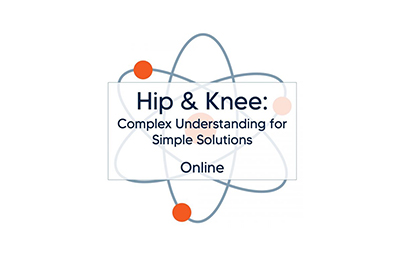

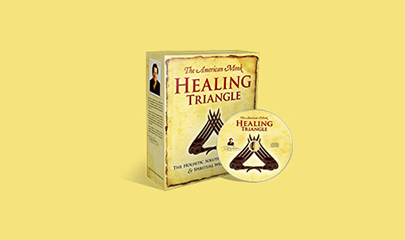







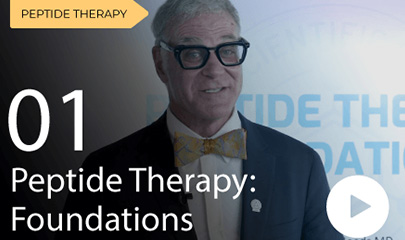
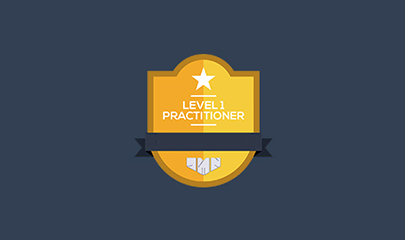
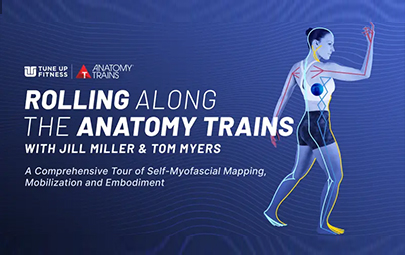

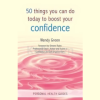
Reviews
There are no reviews yet.